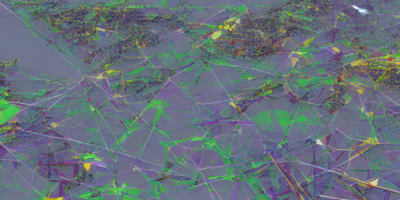The article discusses the concept of "ecphory," a term used to describe the process of recalling past experiences or memories. The author explains that ecphory is not a single entity but rather a complex process involving multiple regions in the brain, each with its unique function. These regions are connected through a synergistic process, allowing for the integration of information from different sources into a coherent whole.
The article begins by challenging the prevailing belief that the hippocampus is primarily responsible for short-term memory storage. Instead, recent studies have shown that other parts of the brain, such as the prefrontal cortex, also play a crucial role in this process. The author cites several theories, including those proposed by Sun et al. (2023) and Yonelinas et al. (2019), which suggest that long-term memory is not stored independently of short-term memory but rather forms a continuous spectrum.
The author then delves into the concept of "conversion thresholds," which refer to the points at which information transitions from one region to another in the ecphory process. These thresholds are arbitrary but must satisfy two key features: they must be asymptotic with the coordinate axes, and the naming threshold must be above the familiarity threshold.
To further elucidate these concepts, the author uses analogies such as "the movie projector" to explain how ecphory works. For example, the prefrontal cortex can be likened to a movie projector that shows a series of images from memory, while the hippocampus acts as a guide, helping to identify which images are relevant and should be stored in long-term memory.
The article concludes by highlighting the importance of understanding ecphory, particularly in the context of transformer models used in artificial intelligence. The author notes that these models can learn to recognize patterns in data without requiring explicit labels or training, a process known as "in-context learning." By gaining insights into how ecphory works, researchers can develop more sophisticated AI systems that can better understand and interact with the world around them.
In summary, the article provides a comprehensive overview of the complex processes involved in ecphory, challenging the long-held belief that the hippocampus is solely responsible for short-term memory storage. By examining the various regions involved in this process and their connections through conversion thresholds, the author sheds light on the intricate mechanisms underlying our ability to recall past experiences and memories.
Neurons and Cognition, Quantitative Biology
Understanding In-Context Learning: A Linear Complexity Architecture Approach



